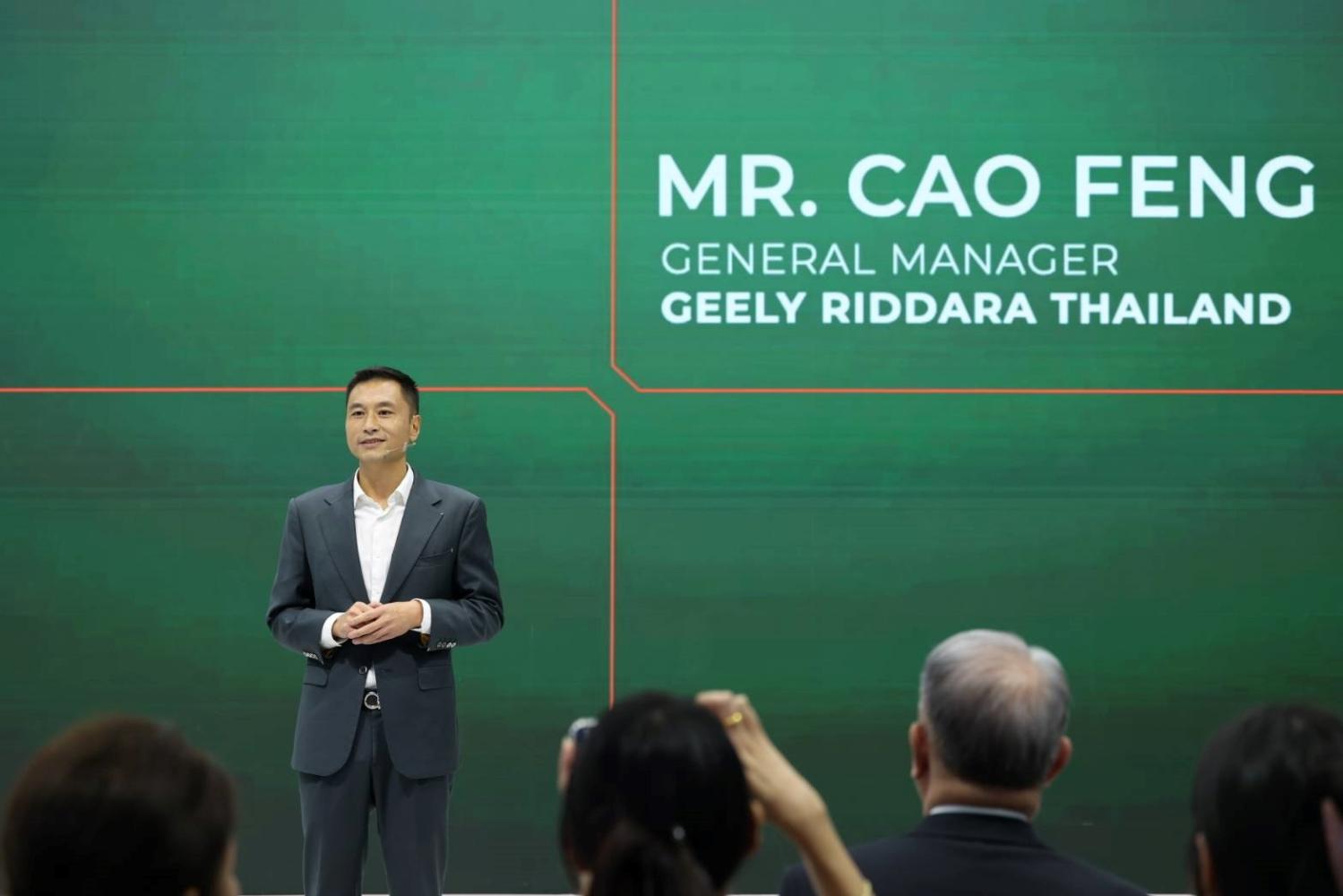Showing 81 - 90 of 10,000
Geely Riddara explores Thai EV pickup production
Lamonphet Apisitniran, Published on 26/02/2026
» Geely Riddara Thailand, the local arm of Chinese automaker Geely's electric pickup brand Riddara, is exploring plans to establish an electric vehicle (EV) factory in Thailand, aiming to capitalise on the country's growing EV market.
Stricter rules for online gold platforms in March
Published on 26/02/2026
» The Bank of Thailand has introduced tighter controls for online gold trading platforms in a move to curb their impact on the baht, with the new rules set to take effect on March 1.
What’s the point of luxury gyms?
BitesizeBKK, Published on 25/02/2026
» Luxury gyms are expanding across Bangkok at a pace that feels less like a passing trend and more like a structural shift in how urban space is being used. From private Pilates studios tucked into Thonglor side streets to padel courts embedded within mixed-use developments, these spaces are multiplying in neighbourhoods that already signal affluence, and they do so with a distinct confidence. Their membership fees are high, their interiors deliberately restrained, and their access often limited. What they offer extends well beyond fitness.
Old places new menus
Guru, Nianne-Lynn Hendricks, Published on 25/02/2026
» Bored of eating the same thing twice? Fear no more, here's a list of restaurants and bars that have shuffled things up to make sure you're never bored or short of choices while dining out.
Facelift in Bangkok — without major surgery A non-surgical, minimally invasive structural lift for 40+
Published on 25/02/2026
» By Dr. Piya Rungruxsiri, MD
Redknapp's Gold Cup dream sparked by late grandmother
AFP, Published on 25/02/2026
» PARIS (FRANCE) — English football icon Harry Redknapp told Agence France-Presse (AFP) that his late grandmother, the inspiration for his love of horse racing, "wouldn't believe" he had a horse that is "running in the (Cheltenham) Gold Cup".
Is Gallici moving the niche towards the commercial?
Anna Neatpisarnvanich, Published on 25/02/2026
» Ann Demeulemeester bridges new connections under Stefano Gallici, unveiling the brand’s first-ever campaign ahead of their Milan store opening.
Bodo/Glimt knock Inter out of Champions League
AFP, Published on 25/02/2026
» Bodo/Glimt, the modest outfit from north of the Arctic Circle, were looking to follow up their stunning 3-1 win last week in Norway in the first leg of their knockout phase play-off tie.Inter, the three-time European champions who are currently 10 points clear at the top of Serie A, were expected to pummel their visitors in an attempt to turn the tie around. But Bodo/Glimt survived at the back before finishing off the tie in the second half.Jens Petter Hauge, who played for AC Milan in 2020/21, gave his team the lead just before the hour mark after a mistake by Manuel Akanji had allowed Ole Blomberg in for an initial shot which was saved.Hakon Evjen made it 2-0 on the night and 5-1 on aggregate, leaving Inter with too much to do, even if Alessandro Bastoni pulled one back with a shot that just crossed the line.Bodo/Glimt, who had won four Norwegian Eliteserien titles in five years before finishing as runners-up last season to Viking Stavanger, are the first side from the country to go so far in Europe’s elite club competition since Rosenborg reached the quarter-finals in 1997.“For us it’s been unbelievable. We knew it would be very hard against Inter who are a very strong team and played in the final last season,” said Hauge.They will find out their last-16 opponents on Friday but already know it will either be Sporting of Portugal or Manchester City next — they defeated City 3-1 at home last month during the league phase.What makes their success all the more striking is that Kjetil Knutsen’s team are currently in their off-season, with the Norwegian league ending in late November and the new campaign not beginning until mid-March.For Inter, exiting at this stage is a bitter blow after they made the final last season only to suffer a 5-0 hammering at the hands of Paris Saint-Germain.Sorloth hat-trickNewcastle followed their 6-1 win away to Qarabag in Azerbaijan in last week’s first leg with a 3-2 victory in the return at St James’ Park, as Eddie Howe’s team ensured there will be six English clubs in the next round.Sandro Tonali and Joelinton both scored inside the opening six minutes, leaving Qarabag facing another heavy defeat.However, Camilo Duran pulled one back early in the second half. Sven Botman headed in Newcastle’s third, but Elvin Jafarguliyev made it 3-2 as he followed in to score after Marko Jankovic’s penalty was saved.Newcastle can now look forward to a heavyweight tie in the next round against either Chelsea or Barcelona.“I think if you look at the score over the two legs it’s been fantastic from the players even though today feels like a bit of a hollow win for us,” said Howe.Atletico had been held to a 3-3 draw by Club Brugge in Belgium last week but they ran out 4-1 winners in Tuesday’s return in the Spanish capital to advance 7-4 on aggregate.Norwegian striker Alexander Sorloth was the star of the show with a hat-trick, including the opener midway through the first half which came from a long kick downfield by goalkeeper Jan Oblak.Joel Ordonez headed the away side level before the break, but USA international Johnny Cardoso restored Atletico’s lead just after the interval.Sorloth scored his second and Atletico’s third on the night on 76 minutes after a brilliant one-two between Ademola Lookman and Antoine Griezmann. Sorloth then completed his hat-trick to round out the scoring with his 15th of the season in all competitions.Diego Simeone’s team will play either Tottenham Hotspur or Liverpool in the next round.“I’m not thinking about Liverpool or Tottenham, I’m enjoying today’s game and being in the last 16 for another season is very important,” Simeone told the broadcaster Movistar.Meanwhile, Leverkusen followed a 2-0 win away to Olympiacos in Greece last week with a 0-0 draw at home in the return.The 2024 German champions now face a huge test next against either Arsenal or Bundesliga rivals Bayern Munich.
UK govt to release files on 'rude' ex-prince Andrew
AFP, Published on 25/02/2026
» LONDON — Britain's government committed on Tuesday to releasing documents on ex-prince Andrew Mountbatten-Windsor's past role as a trade envoy, after the Jeffrey Epstein scandal widened with the arrest of a veteran UK politician.
Aira Capital banking on leasehold developments
Business, Kanana Katharangsiporn, Published on 25/02/2026
» MAI-listed Aira Capital Group continues to focus on property investment on leasehold land, with plans to invest 2.3 billion baht to develop the DoubleTree by Hilton Bangkok Silom hotel, as well as 1 billion baht for a wellness residential project in a tourist destination.













